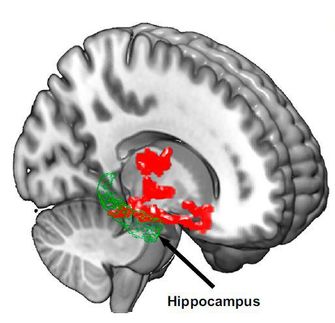Common epilepsy drug could prevent and treat Alzheimer's disease
The team led by UBC psychiatry Prof. Weihong Song, who is also the Jack Brown and Family Professor and Chair in Alzheimer's disease at UBC, found that if Valproic Acid (VPA) is used as a treatment in early stages of AD memory deficit is reversed.
The study, published in the Journal of Experimental Medicine, reveals that VPA works by inhibiting the activity of an enzyme that produces a neurotoxic protein called beta Amyloid. In doing so, plaque formation is discontinued. Amyloid beta-proteins are the central component of neurotoxic plaques in AD.
"We found that if we used VPA in the early stage of Alzheimer's disease, in model mice, it reduced plaque formation and further prevented brain cell death and axon damage," says Song, who is a Canada Research Chair in Alzheimer's disease and Director of the Townsend Family Laboratories in UBC's Faculty of Medicine. "The drug also improved performance in memory tests."
The results will help inform the design of human clinical trials because researchers now understand the mechanisms and pathology of VPA in AD animal models.
"We are very excited about these results because we now know when VPA should be administered to be most effective and we now know how VPA is working to prevent AD," says Song, who is also a member of the Brain Research Centre at UBC and VCHRI. "A small human clinical trial is currently underway and we expect results to be available in the next year."
Topics
Organizations
Other news from the department science
These products might interest you

Systec H-Series by Systec
Safe, reproducible and validatable sterilization of liquids, solids and waste
Autoclaves with 65-1580 liters usable space, flexibly expandable for various applications

Whatman™ folded filter papers by Cytiva
Whatman folded filter papers
Convenient folded formats speed up your sample preparation

Get the life science industry in your inbox
By submitting this form you agree that LUMITOS AG will send you the newsletter(s) selected above by email. Your data will not be passed on to third parties. Your data will be stored and processed in accordance with our data protection regulations. LUMITOS may contact you by email for the purpose of advertising or market and opinion surveys. You can revoke your consent at any time without giving reasons to LUMITOS AG, Ernst-Augustin-Str. 2, 12489 Berlin, Germany or by e-mail at revoke@lumitos.com with effect for the future. In addition, each email contains a link to unsubscribe from the corresponding newsletter.


















































